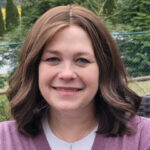
Are you looking to participate in a collaborative learning environment that supports both your growth as a clinician and your understanding of clients in a compassionate, reflective way?
The Reflective Group Supervision (RGS) model was developed at the Ackerman Institute’s Center for the Developing Child and Family. It builds on the Ackerman Relational Approach, integrating principles from reflective supervision, narrative therapy, emotion-focused therapy, and attachment-based therapy. RGS offers a unique approach to supervision, focusing on curiosity, empathy, and non-judgmental reflection to strengthen clinical practice.
Course Overview:
RGS emphasizes the parallel process in clinical work, guiding participants first to reflect on their own experiences and then to consider the needs of their clients. Each session follows four steps:
- Attending to clinicians’ experiences and needs.
- Understanding the individual and/or family system and the larger context in which they are embedded.
- Examining the clinician’s social location and its impact on therapy dynamics.
- Identifying effective clinical interventions.
Unlike traditional supervision, RGS does not prioritize immediate problem-solving or advice-giving. Instead, it provides a safe, supportive environment where clinicians can access their deeper emotional responses, enhancing their reflective capacities, such as empathy, attunement, curiosity, and mindfulness and improving clinical confidence and effectiveness.
Learning Objectives:
Participants will be able to:
- Identify and reflect on their own feelings and thoughts and their impact on clinical work.
- Enhance reflective capacities, including validation, empathy, compassion, curiosity, attunement, and mindfulness.
- Understand systems theory and the influence of social and political contexts on clinical practice.
- Recognize their social location and integrate it thoughtfully into client work.
Date/Time:
October 17, 2025, November 14, 2025, December 12, 2025, January 16, 2026, 10:00 am–12:00 pm (EST); February 13, 2026, March 13, 2026, April 24, 2026, May 29, 2026, 10:00–11:30 am (EST)
Who Should Attend:
Clinicians, designed for supervisors, supervisors-in-training
Limited to 8 registrants!
Special Notes: Sessions will be audio recorded. Participants will complete brief pre- and post-surveys. Informed consent and confidentiality procedures follow IRB standards.
Meet Brenda Nikelsberg:

-
Reflective Group Supervision for Clinicians and Mental Health Providers
October 17, 2025 - May 29, 2026
10:00 am - 11:30 am
Brenda Nikelsberg, LCSW
Online
Online events are held in Eastern Standard Time (ET). A link will be emailed 1 day before the event.





